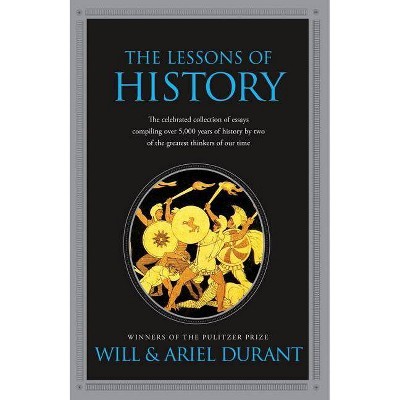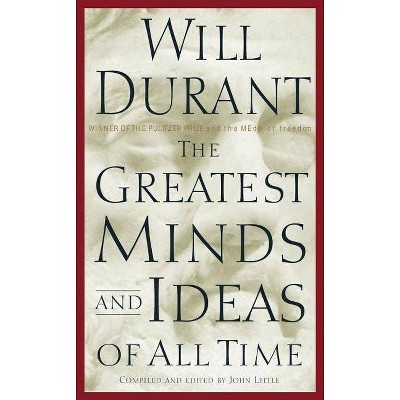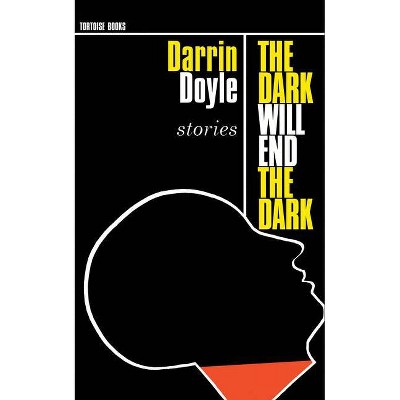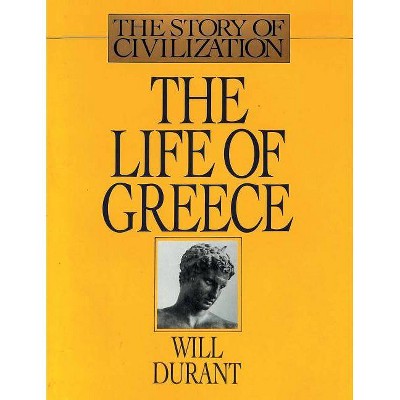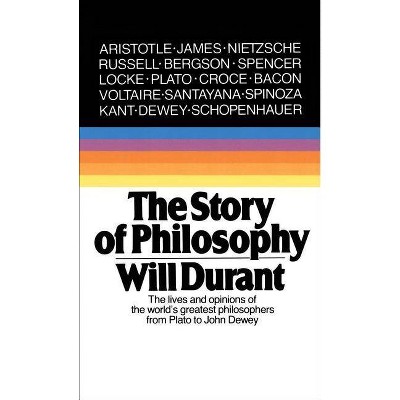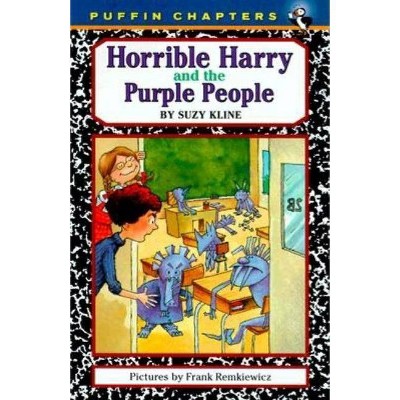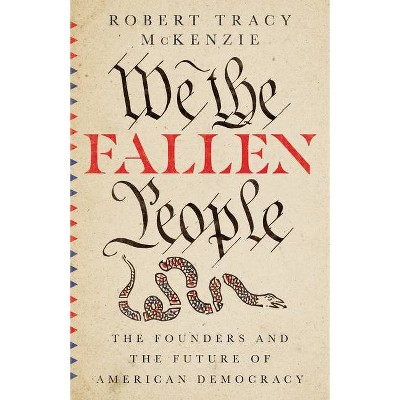Experts and the Will of the People - by Harry Collins & Robert Evans & Darrin Durant & Martin Weinel (Hardcover)
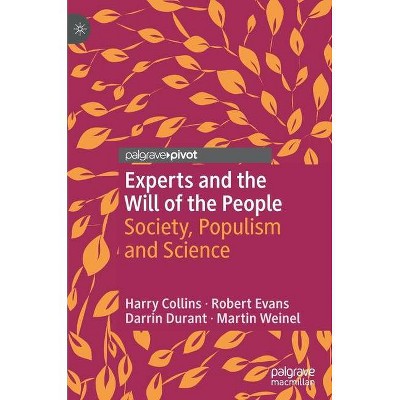
Similar Products
Products of same category from the store
AllProduct info
<p/><br></br><p><b> Book Synopsis </b></p></br></br>The rise of populism in the West has led to attacks on the legitimacy of scientific expertise in political decision making. This book explores the differences between populism and pluralist democracy and their relationship with science. Pluralist democracy is characterised by respect for minority choices and a system of checks and balances that prevents power being concentrated in one group, while populism treats minorities as traitorous so as to concentrate power in the government. The book argues that scientific expertise - and science more generally -- should be understood as one of the checks and balances in pluralist democracies. It defends science as 'craftwork with integrity' and shows how its crucial role in democratic societies can be rethought and that it must be publicly explained. This book will be of value to scholars and practitioners working across STS as well as to anyone interested in decoding the populist agenda against science.<br><p/><br></br><p><b> From the Back Cover </b></p></br></br>"Collins, Evans, Durant, and Weinel set out convincingly, in crystal clear language, why democracies need experts and expert knowledge. They make a rock solid case for the necessity of communities of experts in democratic societies and for the value of esoteric knowledge developed and nurtured within these communities. In doing so, they strike a blow against the current rise of populism in the political arena and against theories in Science & Technology Studies that treat expert knowledge as undermining of democratic agency. This book brings the 'Third Wave' studies of expertise and experience to bear in an impressive way on central problems of political theory that are also matters of urgent public concern as democracies turn toward populism and authoritarianism." <br>- Charles Thorpe, Professor, Sociology and Science Studies, University of California, San Diego, USA <p/>The rise of populism in the West has led to attacks on the legitimacy of scientific expertise in political decision making. This book explores the differences between populism and pluralist democracy and their relationship with science. Pluralist democracy is characterised by respect for minority choices and a system of checks and balances that prevents power being concentrated in one group, while populism treats minorities as traitorous so as to concentrate power in the government. The book argues that scientific expertise - and science more generally -- should be understood as one of the checks and balances in pluralist democracies. It defends science as 'craftwork with integrity' and shows how its crucial role in democratic societies can be rethought and that it must be publicly explained. This book will be of value to scholars and practitioners working across STS as well as to anyone interested in decoding the populist agenda against science. <p/>Harry Collins is Distinguished Research Professor at Cardiff University, UK. <br>Robert Evans is Professor of Sociology in the School of Social Sciences at Cardiff University, UK. <br>Darrin Durant is Lecturer in Science and Technology Studies at the University of Melbourne, Australia. <br>Martin Weinel is Research Associate at the Cardiff School of Social Sciences at Cardiff University, UK. <br><p/><br></br><p><b> About the Author </b></p></br></br>Harry Collins is Distinguished Research Professor at Cardiff University, UK. He is an elected Fellow of the British Academy and winner of the Bernal prize for social studies of science. His c25 books cover, among other things, sociology of scientific knowledge, artificial intelligence, the nature of expertise, tacit knowledge, and technology in sport.<br>Robert Evans is Professor of Sociology in the School of Social Sciences at Cardiff University, UK. He has worked in the field of science and technology studies for over 20 years, with research projects including sustainable energy, medical genetics and economic forecasting. His work is most closely associated with the 'Third Wave of Science Studies', including Rethinking Expertise (2007) and Why Democracies Need Science (2017), both of which were co-authored with Professor Harry Collins, and developing the closely related Imitation Game method.<br>Darrin Durant is Lecturer in Science and Technology Studies at the University of Melbourne, Australia. He has published widely on democratic deliberations about nuclear waste disposal, the politics of climate change, contemporary post-truth dynamics, and the role experts can and should play in liberal democracies.<br>Martin Weinel is Research Associate at the Cardiff School of Social Sciences at Cardiff University, UK. In collaboration with others, most notably Harry Collins, Rob Evans and Nicky Priaulx, he has written on aspects of expertise, science policy, interdisciplinarity, science communication and the Imitation Game. <p/>
Price History
Price Archive shows prices from various stores, lets you see history and find the cheapest. There is no actual sale on the website. For all support, inquiry and suggestion messagescommunication@pricearchive.us
